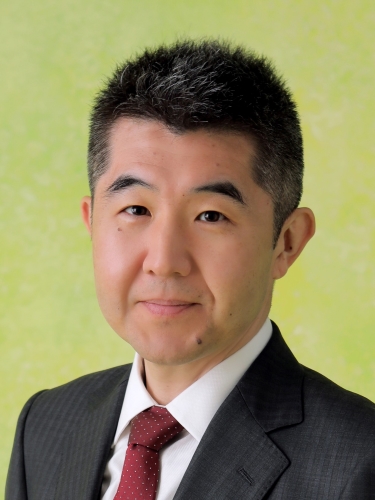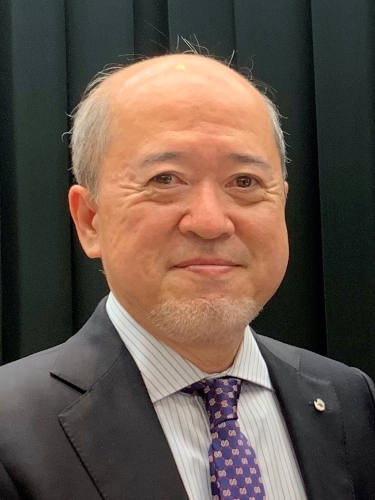Welcome to Program of Medicine, School of Medicine, Hiroshima University

Message from the Head, Program of Medicine
OKADA Satoshi
Characteristics of Program of Medicine
Geographical location: Located in the center of Hiroshima City, the largest city in the Chugoku and Shikoku region. It is home to facilities such as the Peace Memorial Park and the Atomic Bomb Dome, attracting many visitors from around the world. It is the only medical school in Hiroshima Prefecture with a population of 2.8 million people.
History: Originates from Hiroshima Prefectural Medical School and Clinic, which opened in 1945, which has been producing a plenty of medical doctors and researchers who support medical care in Hiroshima Prefecture and in worldwide.
Curriculum: The Kasumi Campus is a comprehensive medical campus comprising the School of Medicine, which includes the Program of Medicine and the Program of Health Sciences, the School of Pharmaceutical Sciences, and the School of Dentistry. Interprofessional education (IPE) is provided across faculties and departments. In addition to traditional lecture-based teaching, we emphasize small group discussions and Problem-based Learning (PBL) tutorials.
Research: In their fourth year, students spend four months conducting basic research in various laboratories, both domestic and international. The MD-PhD program allows students to enter graduate school in their fifth year and dedicate 3 to 4 years to research in pursuit of a doctoral degree.
The mission of the Hiroshima University School of Medicine is to contribute to the advancement of medicine and healthcare through the education of healthcare professionals dedicated to peace. It sets the following goals for cultivating talent:
1) Personnel equipped with essential ethics, a sense of responsibility, and humanity.
2) Personnel capable of acquiring advanced medical knowledge and skills to contribute to the improvement of healthcare and medicine.
3) Personnel with an international perspective and a broad outlook, committed to lifelong learning.
4) Personnel capable of contributing to the improvement of health and healthcare in Hiroshima Prefecture and the surrounding areas.
The progress of medicine and healthcare is built upon the continuous efforts of predecessors and accumulated knowledge. The Hiroshima University School of Medicine strives to foster talented individuals who will lead the advancement of next-generation medicine and healthcare.
To all who wish to study at the Department of Health Sciences, Faculty of Medicine, Hiroshima University

Message from the Head, Program of Health Sciences
SUNAGAWA Toru
This department was established in 1992 as a department with three majors: Nursing, Physical Therapy, and Occupational Therapy, and more than 30 years have passed since then. The Department of Physical Therapy and the Occupational Therapy were the first four-year universities in Japan, and the Department of Nursing was the first school to offer four-year education in nursing.
Many students have studied here and are active as leaders in the medical field, such as nursing and rehabilitation, and in the health and welfare field, as well as educators and researchers at educational and research institutions.
Our department focuses on the following four main areas in order to nurture talented individuals who will become leaders in the field of health sciences.
- We aim to improve students' ability to understand and apply the fundamentals of the health science field, to identify and solve problems, and to improve their communication and information utilization skills to adapt to internationalization and information technology.
- The Kasumi Campus is home to all of the medical faculties, including the School of Medicine (Medicine and Health Sciences), School of Dentistry, and School of Pharmaceutical Sciences, which together provide a team-based medical education.
- The Comprehensive Selection Type II Entrance Examination offers a graduate school preparatory program, providing an integrated education from undergraduate to graduate school that leads to a doctoral program.
- We have deepened cooperation with overseas universities and established a support system for study abroad and training programs.
Becoming a "medical professional" is both rewarding and responsible, but it also allows you to make many contributions to society. Our department seeks students with high aspirations not only to become medical professionals, but also to become top runners in this field.
In order to become a medical professional who can provide holistic medical care, students are required to have not only academic ability and knowledge, but also social skills, human nature, and morals. The four years of university are an important period for human development, and it is important not only to study but also to interact with many people through clubs and circle activities.
Society is undergoing rapid changes without waiting for the rapid acceleration of IT, globalization, and the aging of the population. In our department, the faculty will work together to foster medical professionals who can respond to this era of change.

 Home
Home
